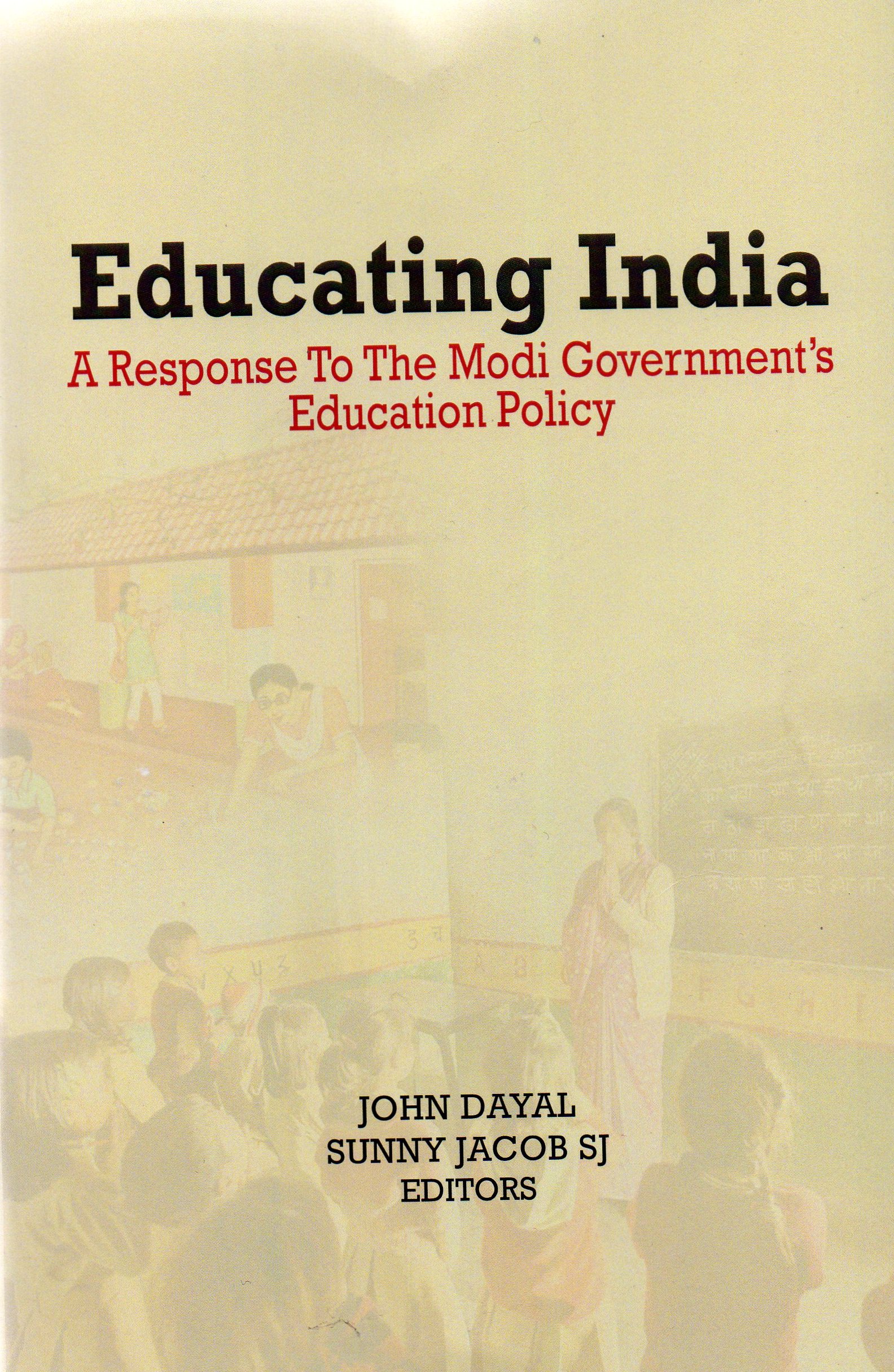Description
EDITORS
JOHN DAYAL
John Dayal is one of India’s foremost voices on human rights, civil liberties and religious freedom. A researcher, writer and occasional documentary filmmaker, he has a long record of investigating and producing substantive and influential documentation on targeted violence against religious minorities, Dalits and Tribals. He is, or has been, a member of several governmental and academic bodies, including the National Integration Council chaired by the Prime Minister of India. He was co-founder and Secretary General of the All India Christian Council [1968-2016], National President of the 100 year old All India Catholic Union [2004-2008], and Spokesman of the United Christian Forum [since 2015]. His books include For Reasons of State – Delhi under the Emergency [Penguin] [published 1977, republished 2018 with Ajoy Bose], Gujarat 2002 – Untold and Retold Stories, A Matter of Equity – Interrogating Secularism in India. With activists Harsh Mander and Natasha Badhwar, he co-edited Reflections: Karwan-e Mohabbat’s Journey of Solidarity Through a Wounded India. He is a frequent commentator on human rights issues, politics and strategic affairs.
Fr. SUNNY JACOB
Sunny Jacob S.J. is a well-known Jesuit educationist in India. He is a member of the Jesuit Think Tank Team on National and international Issues. After his formation and studies, he worked as a teacher, vice-principal, principal, and director of schools in Odisha, and Jharkhand. Currently, he is Secretary, Jesuit Educational Association South Asia (JEASA). He is also a member of the International Commission for the Association of Jesuit schools in Rome. He is the National Adviser to the Jesuit Alumni Association of India (JAAI), which is one of the largest Alumni networks in India. Fr. Sunny is a prominent education activist, and a frequent writer in magazines and periodicals on issues of education.
ABOUT THE BOOK
The government is trying to impose an anti-people policy on the whole country. If the draft New Education Policy 2019, is finalized it will disturb the secular and peaceful fabric of the country.
Most Reverend Anil J T Couto
Archbishop of Delhi
Over centralisation in the field of education is the antithesis of autonomy, which is essential for free thinking and high-quality research. Education should bridge the gap between communities and not be an instrument to widen the chasm. It is apparent that the DNEP 2019 envisions that the Government will gradually withdraw from the field, especially of higher education, and the private sector will become a major player. Bringing about change, just for the sake of change is a short-sighted policy.
Lt Gen [Retd.] Zameer Uddin Shah PVSM, VSM
Former Deputy Chief of Army Staff
Former Vice Chancellor, Aligarh Muslim University
Contents
The Authors and Editors
Editor’s Note
Introduction
Foreword
Chapter 1
Draft National Education Policy, 2019
Schooling
Loosening Control on Inputs
Instructional Aides
Language and Curricula
Content of Learning
School Complexes
Education and Democracy
Higher Education
Research Funding
Doctoral Programmes
Diverse Issues
Financial Issues
Autonomy and Political Control
Chapter 2
Constitutional Commitments, Social Realities, and Needs of Ordinary People
The Vision Behind DNEP 2019
The Market is Everywhere, but Where is the Indian Constitution?
Autonomy and Governance: Discarding Democratic Processes
School Education
Gender, Caste, Class: Division in Perpetuity
Language
Multidisciplinarity and Holistic Learning
Chapter 3
Agendas and Gender Issues
The Education System of India
Highlights of the Draft Education Policy:
The Exclusions and Biases
Biases
The Schooling System
On Page 57 the Document Details
Volunteer Social Workers
Processes of Marginalization
Language as a Tool for Discrimination and Marginalisation
Gender Discrimination
Chapter 4
The Wrong to Education Act, 2019
A Brief History of Article 30 (1)
The New Draft NEP
Is Primary Secondary?
Closing Doors
Teacher, Leave the Kids Alone
Silent on Reservations
Rashtriya Shiksha Aayog
Chapter 5
Excluding the Dalits and Adivasis
The Education of Scheduled Castes
The Education of Scheduled Tribes
The 2019 policy proposes:
Education of Children Belonging to Scheduled Caste Communities and Other Backward Classes
Education of Children From Tribal Communities
Chapter 6
Gender, Sexuality, Social Justice Education
Gender
Gender and Girls
Non Discrimination
Attitude Towards Caste
Disability and Inclusive Education
Safety and Security
Rights of Transgender Students:
Poverty, Illiteracy and Social Responsibilities
Teaching and Learning English
Key Issues Must Be Addressed
Conclusion
References
Chapter 7
Sabotaging The Right to Education Perspective
Chapter 1 : Early Child Care and Education (ECCE)
Chapter 2: Foundational Literacy and Numeracy
Chapter 3 : Reintegrating Drop Outs by Ensuring Universal Access to
Chapter 4 : Curriculum and Pedagogy in Schools
Chapter 5 : Teachers
Chapter 6 : Equitable and Inclusive Education
Chapter 7: Efficient Resourcing and Effective Governance through School Complexes
Chapter 8 : Regulation and Accreditation of School Education
Chapter 23 Rashtriya Shiksha Aayog (RSA)
Addendum 1: Financing
Chapter 8
Perspective from the Campus
The color of the NEP 2019 is saffron.
Responses and Submissions from Christian and Islamic Group
Catholic Bishops’ Conference of India
Jesuits’ Submission on DNEP
Archdiocese Of Delhi
Utkal Christian Council
Christian National Consultations
Press Note
Muslim Consultations
National Education Policy 2019
- School Education
- Higher Education
III. Other Key Areas of Focus
- Making it Happen
Book Review By – Aparajita Sharma
Council For Social Development, New Delhi
Review Published By- Social Change Journal
The book, Education India: A Response to the Modi Government Education Policy is a collection of critical responses to the 470-page Education Policy Draft (DNEP) 2019 prepared by a committee headed by the eminent space scientist,
K. Kasturirangan and the 55-page draft of the New Education Policy which came
later. Various civil society alliances, teacher and other submitted their responses to the Ministry of Human Resource Development on the DNEP. This volume is an outcome of a national consultation of key stakeholders, which was held in Delhi organised by various religious and secular organisations to express their concerns on the DNEP. It captures a real-time record of the contextual responses made to the DNEP 2019 which was finally translated into a New Education Policy for the country.
Edited by John Dayal, a well-known civil rights activist and Sunny Jacob, a Jesuit educationist, the chapters have also been authored by socially engaged academics and activists who have been working on education, all pushing for education to be recognised as a human right. The book is important in the current context as the NEP (National Education Policy, 2020) has recently been passed by the cabinet and is being critically scanned by civil society and education activists and progressive members of academia.
The book begins with an introduction titled, ‘Education Policy and Practice for the Next 30 Years’ which encompasses issues which the DNEP addresses in detail. As the interventions show there are many areas which the DNEP has overlooked or simply treated superficially. Expressing concern in the way the DNEP 2019 was reduced to a 55-page draft and the way suggestions and submissions made by civil society and state governments were ignored, the chapter details issues that are essential for a NEP to document. For instance, it places a spotlight on how the DNEP refers to previous policies (p. 37), showing how it failed to give a fair treatment and judgment on issues raised. For instance, it has incorrectly been presumed in the DNEP that previous policies didn’t cater to the need for quality education in the country. This is not the only instance where the DNEP has ignored existing policies. The DNEP has also categorised marginalised groups like the OBCs, SCs and STs (Other Backward Castes, Scheduled Castes and Scheduled Tribes) under a homogeneous rubric, URGs (under-represented groups) and has overlooked affirmative policies that were put into place to help them, primarily reservation. This lapse is explained in great detail by Atul Sood who stresses that by ignoring affirmative action, the draft policy has runs the risk of promoting a majoritarian culture and prevents the ushering in of transformational anti-patriarchal values (p. 75). Expanding on the issue of the exclusion of dalits and adivasis in the policy, Anil Chamadia, in his chapter has expressed concern on the reiteration of merit and talent neutralising the debates of social justice. Such neglect and exclusion also has some gender overtones as Bushra Siddiqui highlights in her chapter how women suffer the double discrimination of both caste and gender (p. 89). Similarly, the complete omission of the word secular which was introduced in the Constitution through the 42nd amendment after understanding its significance for a diverse country like India has been highlighted in every chapter particularly in the responses and submissions made by Christian and Islamic groups, though perhaps not explicitly. All authors have emphasised retaining the inclusive character of the Indian nation and adhering to the Constitution of India.
Considering the federal structure of the country and with education being listed in the concurrent list, the DNEP approach to education is far too centralised, again a contravention of constitutional provisions. Further, the policy overlooks education as a public good and brings private players in the education sector and particularly encourages philanthropic funding. Both themes cut across all the chapters. It has been well captured in the submissions section that there has been an attempt to bring a new system of education by revamping all the aspects of education structure, regulation and governance to align with the aspirational goals of the twenty-first century while retaining Indian tradition and values system. The authors have suggested collectively that the need is to strengthen the existing education system and not revamp it.
The narrative of the volume also hints at an underlying Hindutva agenda and ideology (p. 111) seen in a policy veering towards Indian values and traditions while at the same time also favouring privatisation and minimising the role of state in education, both at the primary school and higher education level. For example, the proposal to constitute a Rashtriya Shiksha Aayog is a move towards a highly centralised education system, not ideal for a diverse country like India.
Welcoming the focus on early childhood education in the policy, the authors however have expressed some concern on a new structure which might end up replacing the first eight years of free and compulsory schooling as provided by the RTE (Right to Education) Act 2009 with first five years education, now called the Foundational Stage (p. 180). Further, the authors are anxious that with the DNEP specifically mentioning a relaxation of RTE norms, somehow indicates a large- scale opening of private schools which moves away from the definition of school as mentioned in the RTE Act. It further allows various philanthropic, private public partnerships in school education as well. This raises some apprehensions as to what will be the mechanism for the implementation of the Act in a changed policy environment. It is important that there is a lot of focus on early childhood education; however, among the diverse financing patterns mentioned, including the public sector, and CSR funding, again makes civil society question as to what will be the direction of universalistion of education in the country?
Further, bringing back an informal school structure of model gurukuls, pathshalas and a new cadre of teachers for teaching poor children also points to the saffronisation of school education. As Siddiqui writes, ‘This inspiration in the policy maker’s vision could be a coincidence, or it could be a mechanism to legitimise and mainstream the school system of the sangh’ (p. 107).
The book has been able to develop and strengthen the narrative on education produced by the DNEP. Commenting on the nature of the DNEP, all the chapters articulate what people want in a NEP for a nation as diverse as India for the next quarter of a century in which educational rights, information’s technology and economic and social development will evolve to present new challenges and perhaps new opportunities for India’s young people. In this context, concerns regarding exclusion of marginalised groups and ignoring their history and struggle become all the more important.
This book has accomplished the remarkable task of putting forth significant issues to readers in a way that challenging them will not be easy for anyone. This contribution alone is indeed significant. The volume is a necessary tool for any reader who is working or hopes to work in the field of education, both at the policy and grassroots level. Most probably those who have been involved in finalising the policy will criticise this volume as it has provided a comprehensive appraisal of the DNEP. The book has been able to respond to the DNEP, and its intention for diverting its central focus to the educational needs of the children and youth of India. It would be useful to see what thoughts the framers of the National Education Policy have absorbed from this book and what has been ignored from this well-documented, collective effort.




1 review for Educating India: A Response To The Modi Government’s Education Policy
There are no reviews yet.